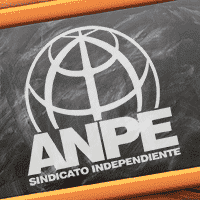The selection process for entry into and access to the Bodies of Secondary School Teachers and Special Regime (RE) has begun with a series of changes aimed at adapting to current educational needs. In this call, the participation of applicants who not only compete for traditional positions but have also acquired new specialties is highlighted, which could influence their chances of success.
The educational authorities have established a rigorous selection system that includes various theoretical and practical tests. These are designed not only to assess the subject-specific knowledge of each subject, but also pedagogical skills and the ability to adapt to diverse and changing educational environments.
One of the most relevant aspects of this year has been the inclusion of new specializations in the candidates' CVs. This addresses the growing demand for emerging subjects and the need for educational institutions to have trained teaching staff in areas that had not previously been considered priorities. Among these new specialties are digital education, environmental sustainability, and emotional intelligence, all considered key to equipping students with 21st-century competencies.
Applicants who have acquired these new specialties compete on equal terms with those who opt for the established ones; however, the growing interest in these areas could result in a favorable position for multidisciplinary candidates. The hiring managers claim that they are looking for versatile profiles, capable of delivering high-quality teaching in several areas of knowledge.
The process, known for its competitiveness, has motivated many applicants to continue training and update their skills. This trend also reflects a personal and professional commitment to improving the quality of education, an aspect that both students and parents value more and more.
As the selection progresses, it is expected that demand for innovative specialties will continue to grow, driven by an educational structure that must adapt to a world that is constantly changing. The results of the selection process will be key to defining the composition and quality of the teaching staff for future generations, directly influencing the development of more prepared and aware societies.
Once the process is complete, the selected candidates will not only have demonstrated their merit in a competitive environment, but they will also have laid the foundations for a teaching career tailored to the needs of the future. The expectations are high, and the success of new educators will depend as much on their individual abilities as on their ability to integrate and apply their knowledge in an increasingly demanding educational context.
Press release from ANPE Madrid.



